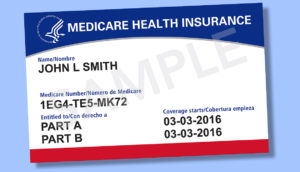 Today’s top story: 9 money numbers you need to know. Also in the news: The case for going back to school, how to avoid pet scams, and when to consider an FHA-backed mortgage.
Today’s top story: 9 money numbers you need to know. Also in the news: The case for going back to school, how to avoid pet scams, and when to consider an FHA-backed mortgage.
9 Money Numbers You Need to Know
Give yourself a quick financial health check-up by seeing where you stand on a handful of important measurements.
College, Interrupted: The Case for Going (Back) to School
Skipping out on college, delaying enrollment or not finishing a degree can affect lifetime earnings.
Scam Alert: How to Get a Pet and Not Get Taken
Avoid online animal listings, and take steps to protect yourself when buying in person. Consider a shelter animal.
When to Consider an FHA-Backed Mortgage
The pros and cons.
 Today’s top story: What to do if a credit card issuer lowers your credit limit. Also in the news: Paying off credit cards takes money and the right mindset, how to rethink home and travel if your job is now remote, and when to expect that $3600 in child tax credit checks.
Today’s top story: What to do if a credit card issuer lowers your credit limit. Also in the news: Paying off credit cards takes money and the right mindset, how to rethink home and travel if your job is now remote, and when to expect that $3600 in child tax credit checks. Today’s top story: Can I deduct Medicare costs on my income tax? Also in the news: Is a personal loan or home equity loan right for your reno, the high price of money shame, and steps to take before you go to a car dealership if your credit score isn’t great.
Today’s top story: Can I deduct Medicare costs on my income tax? Also in the news: Is a personal loan or home equity loan right for your reno, the high price of money shame, and steps to take before you go to a car dealership if your credit score isn’t great. Today’s top story: How much car insurance do you really need? Also in the news: As major credit card issuers pull back amid COVID, startups stepped in, reboot your budget to prepare for reopening, and when to expect a refund for your $10,200 unemployment tax break.
Today’s top story: How much car insurance do you really need? Also in the news: As major credit card issuers pull back amid COVID, startups stepped in, reboot your budget to prepare for reopening, and when to expect a refund for your $10,200 unemployment tax break.